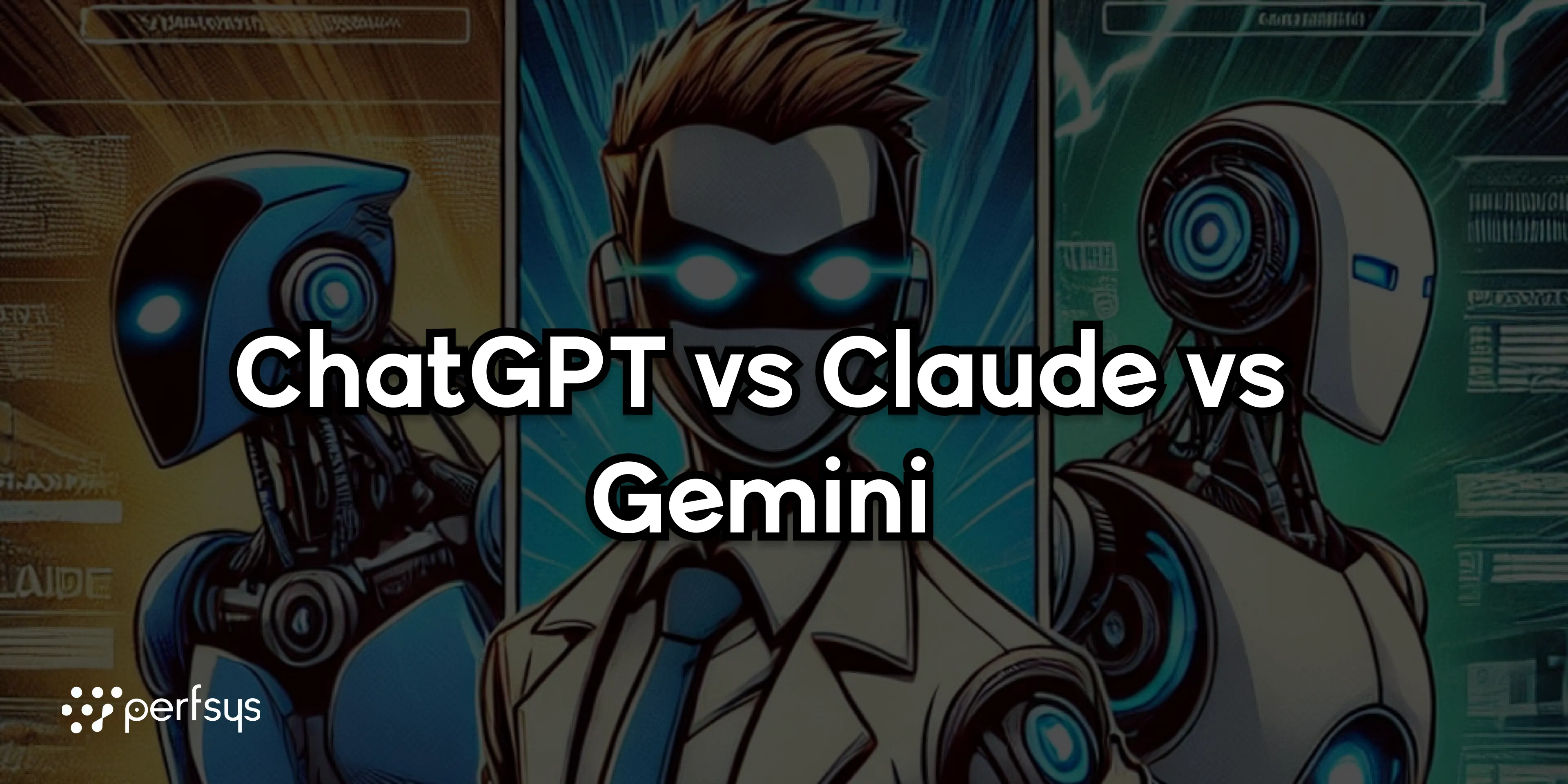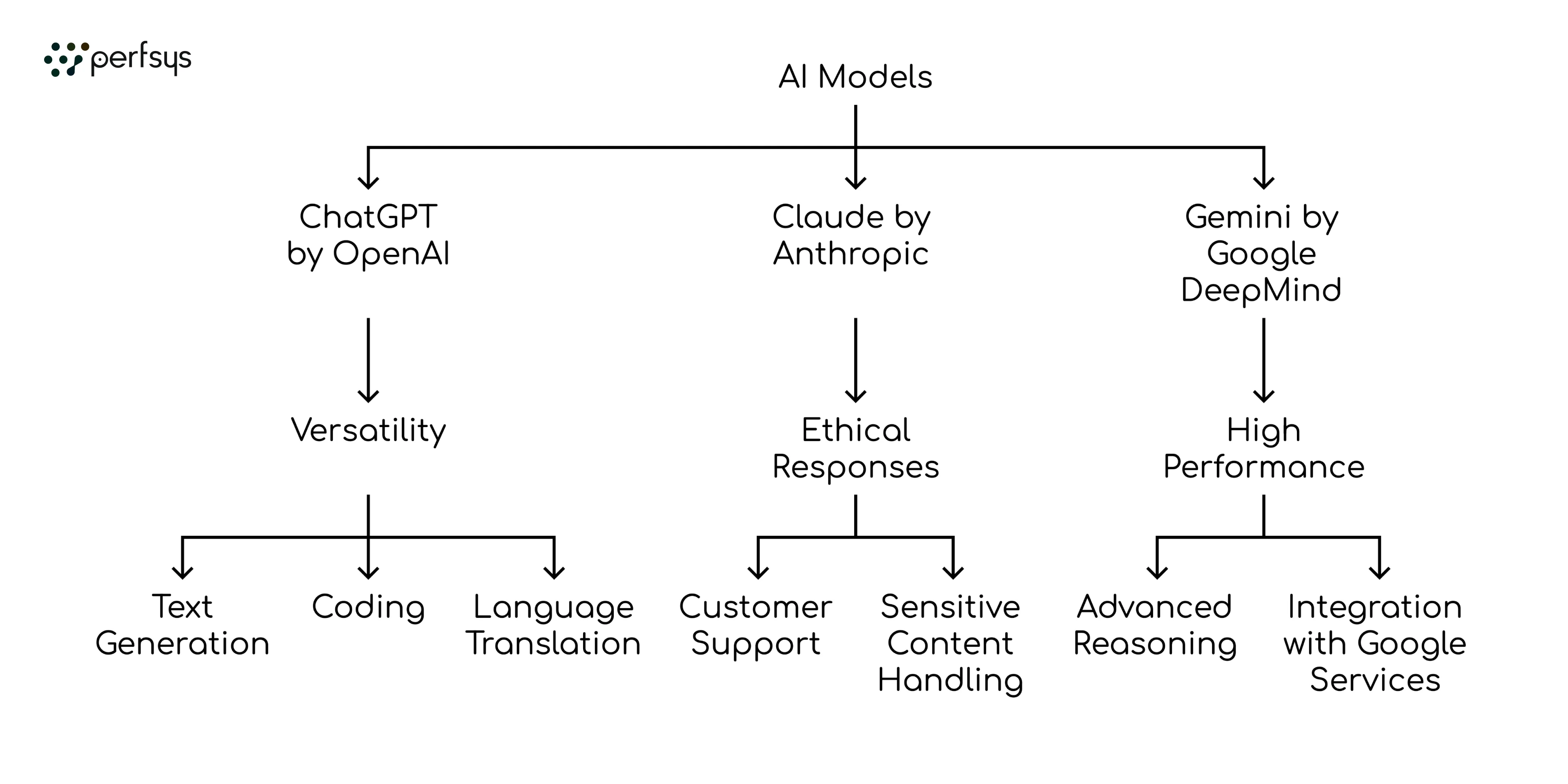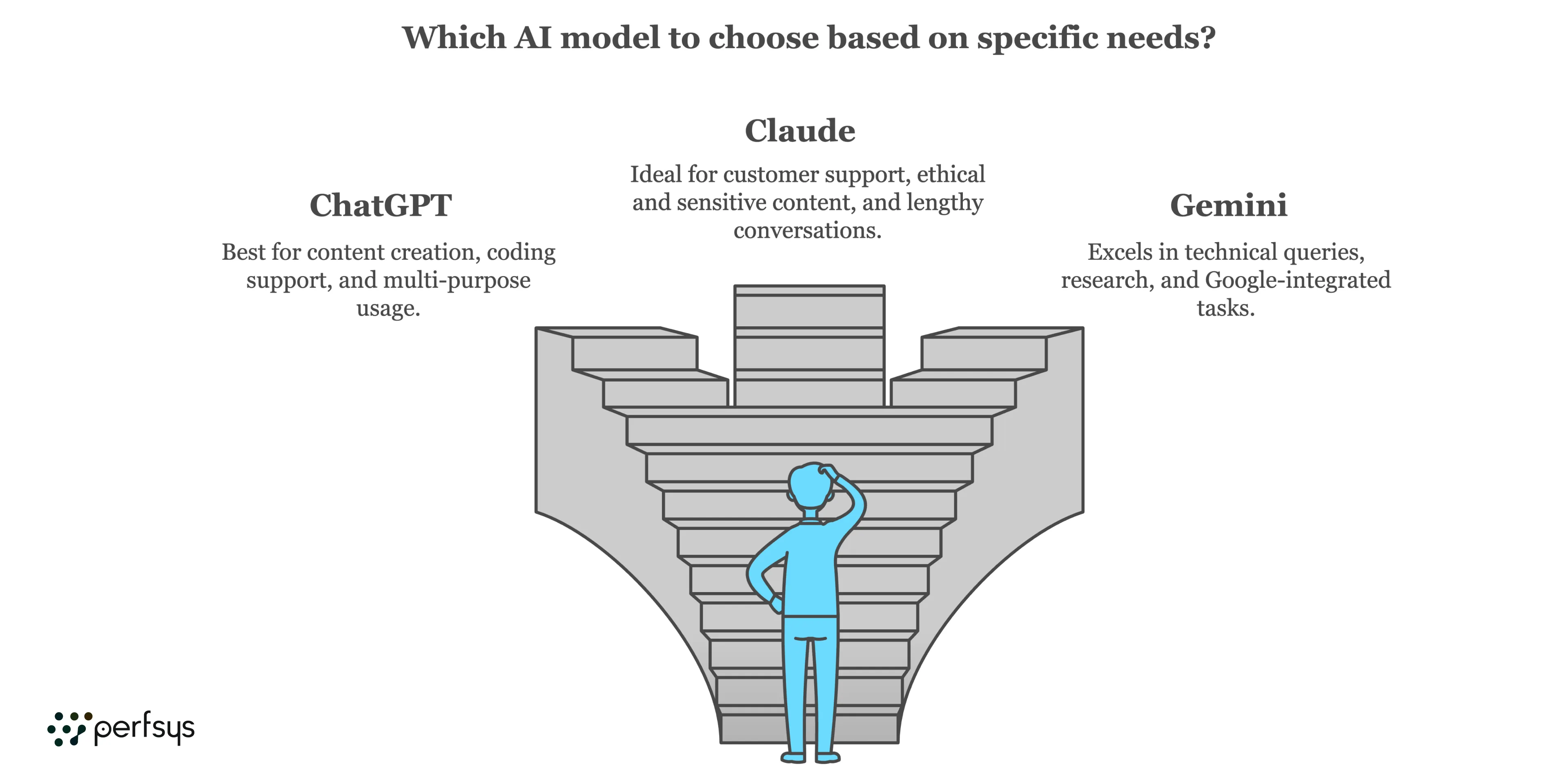What is Better, ChatGPT, Claude, or Gemini? A Comparison of AI Language Models

With the rise of AI language models, tools like ChatGPT, Claude, and Gemini are gaining popularity for their ability to generate text, answer questions, and support a variety of applications, from content creation to coding assistance.
While each of these models has unique strengths, they’re not all created equal. This guide compares ChatGPT, Claude, and Gemini to help you decide which AI tool might be the best fit for your needs.
What are ChatGPT, Claude, and Gemini?
Each of these AI models is a large language model (LLM), trained to understand and generate human-like text based on input. Here’s a brief overview:
-
— ChatGPT by OpenAI: Known for its versatility, ChatGPT is widely used for text generation, coding, language translation, and more. It’s available as both a free and paid version (with GPT-4 access), offering high-quality text generation, chat-based interactions, and support across various applications.
-
— Claude by Anthropic: Claude focuses on providing safe, helpful, and interpretable responses, with particular attention to minimizing harmful outputs. It’s designed for high-quality, ethical responses, especially suited to customer support and sensitive content handling.
-
— Gemini by Google DeepMind: Gemini emphasizes high performance and advanced reasoning, especially in technical fields. Leveraging Google’s extensive research in language and AI, Gemini integrates with Google’s ecosystem, making it particularly useful for users already working with Google services.
Key Comparison Factors
Let’s compare ChatGPT, Claude, and Gemini based on several key factors, including accuracy, customization, context handling, and accessibility.
| Feature | ChatGPT | Claude | Gemini |
|---|---|---|---|
| ---------- | |||
| Primary Strength | Versatile text generation | Ethical, safe AI responses | High performance, technical focus |
| ---------- | |||
| Accuracy | High, especially with GPT-4 | Moderate to high | High |
| ---------- | |||
| Context Handling | Good (4K-8K tokens) | Excellent (100K+ tokens) | Strong |
| ---------- | |||
| Customization | Custom instructions, memory | Limited customization | Integrated with Google ecosystem |
| ---------- | |||
| Ideal Use Case | Content creation, coding | Customer support, sensitive content | Technical queries, research |
| ---------- | |||
| Accessibility | Free and paid versions (GPT-4) | Limited free access, some paid | Paid access, with Google integration |

1. Accuracy and Knowledge Base
-
— ChatGPT: Known for high accuracy, especially in the GPT-4 version, ChatGPT excels in general knowledge, writing, and code generation. It’s widely regarded as a strong, versatile option with up-to-date knowledge in its latest versions.
-
— Claude: Claude’s responses are designed with a strong ethical framework, prioritizing helpfulness and minimizing harmful outputs. While accurate, Claude occasionally sacrifices specificity in favor of safety, making it best for contexts requiring high sensitivity.
-
— Gemini: Developed by Google DeepMind, Gemini is designed for technical accuracy and research, with access to Google’s knowledge base. This makes it highly reliable for technical or complex queries, especially in research and specialized fields.
2. Context Handling and Memory
-
— ChatGPT: Handles medium context well, with a token limit of up to 8,000 tokens for GPT-4. This allows ChatGPT to retain context over extended conversations, ideal for multi-step tasks and dialogue-based interactions.
-
— Claude: Offers some of the best context handling, supporting up to 100K tokens. This extended context window allows Claude to remember long, detailed conversations, making it ideal for customer support and complex discussions.
-
— Gemini: Strong in context retention and performance, especially with Google integrations that add an extra layer of contextual knowledge. Gemini’s context-handling strength benefits from Google’s large data sets and advanced machine learning techniques.
3. Customization and Flexibility
-
— ChatGPT: OpenAI offers customization through user-defined instructions, and in the paid versions, memory capabilities are gradually being integrated. This makes ChatGPT highly flexible for users who want to fine-tune responses.
-
— Claude: While generally less customizable than ChatGPT, Claude’s safety settings are appealing for users who require consistent, safe output. However, it lacks the flexibility in personalized adjustments seen in ChatGPT.
-
— Gemini: Works well within the Google ecosystem, allowing customization through Google’s services. This can be ideal for users embedded in Google Workspace who want seamless AI integration across Google products.
4. User Accessibility and Cost
-
— ChatGPT: Offers a free version with GPT-3.5 and a paid version for GPT-4, making it accessible to a wide range of users, from casual users to professionals. Paid users have additional features, including enhanced response quality and context retention.
-
— Claude: Anthropic offers limited free access, though full features typically require a subscription. It’s generally priced competitively but may lack the broad free usage ChatGPT offers.
-
— Gemini: Available through Google’s services, Gemini is often accessible through paid Google Workspace plans or specific research partnerships. While it offers strong integrations, it may be less accessible to casual users.
Best Uses for Each AI Model
-
— ChatGPT: Best suited for content creation, coding support, and multi-purpose usage. If you need a versatile tool that’s easily accessible, ChatGPT is a solid choice.
-
— Claude: Ideal for customer support, ethical and sensitive content, or situations where handling lengthy, detailed conversations is essential. Its high token count makes it ideal for businesses and customer-facing roles.
-
— Gemini: Excels in technical queries, research, and Google-integrated tasks. If you need advanced reasoning and a model that can work seamlessly with Google tools, Gemini is an excellent choice.

Conclusion
Choosing between ChatGPT, Claude, and Gemini depends largely on your specific needs and context:
-
— ChatGPT is the most versatile and widely accessible option, making it a great choice for general use, creative writing, and coding.
-
— Claude is ideal for applications that require safety, ethical responses, and longer conversations, especially in customer support.
-
— Gemini is perfect for technical, research-based tasks, particularly for users embedded in Google’s ecosystem.
Each of these AI models has its strengths, so understanding their unique capabilities can help you make the most of AI, whether you need help writing, analyzing data, or managing complex conversations.
